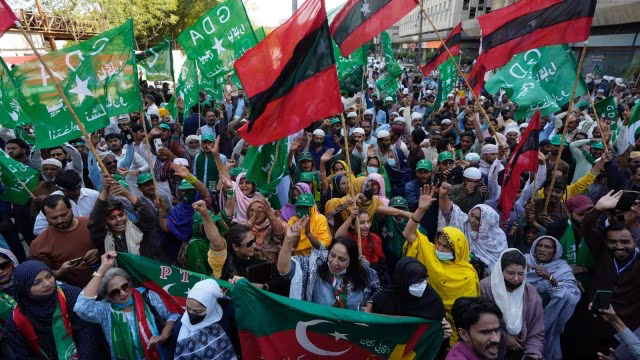Sukhmani Kooner, Pune
After the recent general elections that were concluded on February 8, the ECP (Election Commission of Pakistan) is gearing up for the elections of the head of state. It is expected to be conducted by March 9. It is imperative that the elections take place by this date because two days later, fifty members (which make up 50%) of the Senate are retiring.
The senate is the upper house of the Pakistani Parliament, which does not dissolve. In accordance with Article 41(4) of the constitution, as the elections for the National Assembly (lower house of the parliament) took place on February 8, the elections for the office of the president should be conducted by March 9 (to be held within thirty days of general elections).
Pakistan has earned itself a reputation as an unstable democracy owing to its military interference in political dynamics. The military is referred to as ‘the establishment’ and is the major stakeholder in the country’s economy as well as in the carrying out of democratic procedures. This claim is supported by the fact that no prime minister of Pakistan has ever completed a full 5-year term. In terms of economic control, the nation’s Fauji Foundation has a net worth of $20 billion.
The country is yet again in a state of unpredictability after the general elections of February 2024. Recently, Liaquat Ali Chattha was booked by the committee set up by the ECP for spreading false information and brewing lies about election rigging. He later admitted that PTI (Pakistan Tehreek-e-Insaf) had tempted him with a ‘lucrative position’.
The six-party alliance (Pakistan People’s Party and Pakistan Muslim League-Nawaz), which is set to form a coalition government under the leadership of Shehbaz Sharif, has already nominated Asif Ali Zardari as its presidential candidate. After the end of Pervez Musharraf’s military dictatorship, he was elected president from 2008 to 2013.
The incumbent President, Dr. Arif Alvi, is the fourth president to complete a full 5-year term and the third consecutive president to have a full term. Due to the political instability and turmoil in Pakistan, there was an incomplete electoral process. Due to this, Dr. Arif is the first president to get a term extension in the history of Pakistan. In accordance with Article 44(1) of the constitution, Dr. Arif will continue to hold his office until the next President is chosen.
